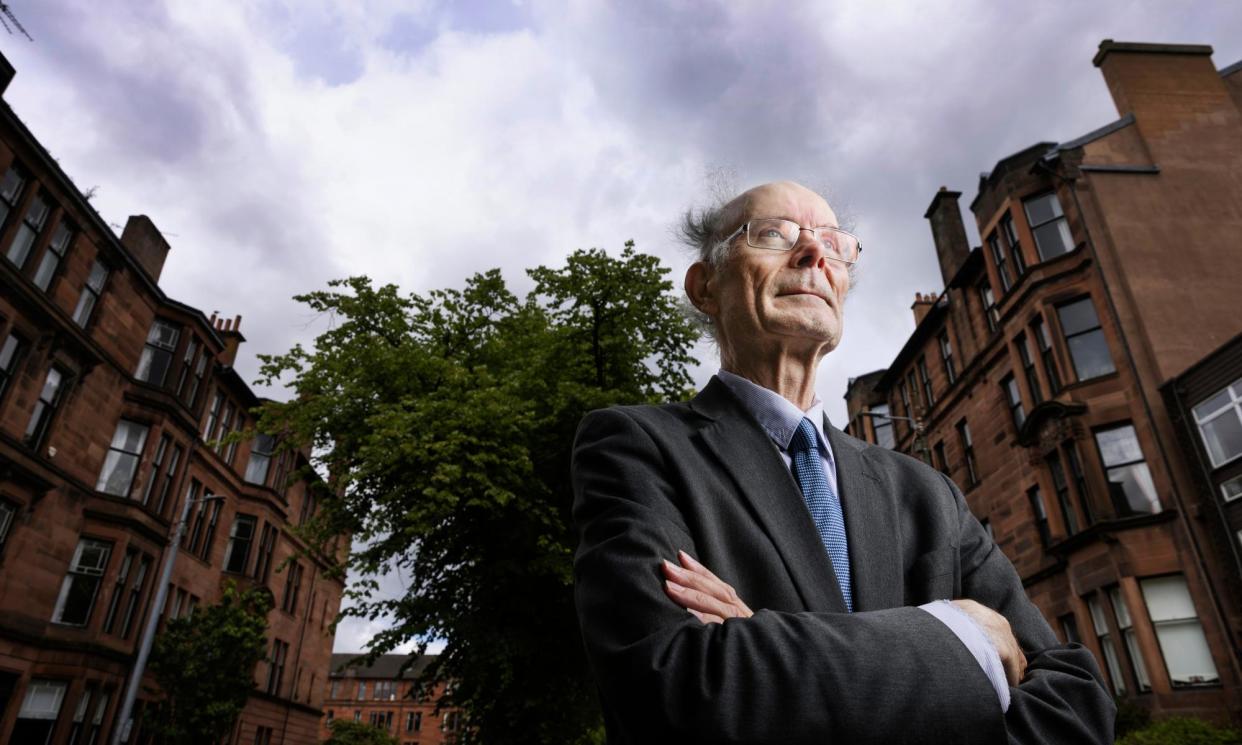‘Uncharted waters’: elections guru Prof Sir John Curtice on 4 July predictions

Ask Prof Sir John Curtice, Britain’s most trusted elections guru, about his plans for polling day on 4 July, and the answer is visceral.
“From about 11 o’clock in the morning, we’re poring over an exit poll and from about 12 hours later, we’re shitting bricks as to whether it’s right or not,” he said.
The 70-year-old professor of politics at the University of Strathclyde, and senior research fellow at the National Centre for Social Research, has been a fixture of the BBC’s election coverage since 1979.
Instantly recognisable for his tall, lean frame and the independently – minded tufts of grey hair that frame his angular features, Curtice is appreciated as much for his refusal to take himself too seriously as his analytical prowess.
His ubiquity means he is often recognised while going about his business in Glasgow or London. “It’s fine,” he says. “The only people who come up to you are the people who want to say something nice. People who think you’re crap won’t bother. So it’s an asymmetric group”.
Since 2005, the model of exit poll Curtice created with “a very clever statistician called David Firth”, with voters in about 130 polling stations given a mock ballot, has proved impressively accurate, and in the past five general elections the margin of error has ranged between 1.5 and 7.5 seats.
But the fieldwork on this election day will bring Curtice into “uncharted psephological waters”, he says, with evident delight.
“The scale of the Conservative losses are unprecedented if the polls are at all right, so we will spend a lot of the day really worrying about how big is the number we should be putting up [for Labour], or in the case of the Tories, how small,” he adds.
When asked if all these landslide predictions have any impact on voter behaviour, he says: “Other things being equal, it helps to reduce the turnout.
“It’s all over bar the shouting: ‘There’s not much difference between the parties. Oh, and by the way we’ve got a bunch of boring politicians who don’t inspire anybody. Why bother?’”
The latest British Social Attitudes survey, which Curtice helped launch earlier this week, found that public trust in politicians is at a record low.
“They’re all telling a load of porkies,” he complains. “Despite all the talk of taxes not going up, taxes are going up in the next parliament.”
But it’s a “fundamental misconception” that voters are automatically put off by tax rises, he says. He suggests two possible explanations: first, that people still think public services are in a mess, and so are willing to pay to fund improvement. “Or has the pandemic fundamentally changed attitudes, like a world war, where the state intervenes at an unprecedented level and people go ‘yes, that’s what we need to do?’”
Curtice’s reputation for accuracy precedes him, but he pauses briefly when asked if there is any previous misjudgment that still rankles him.
“Certainly one of the reasons why I was more attuned to the possibility of the [Nigel] Farage intervention this time was I didn’t fully appreciate, straight away, the impact of Farage’s withdrawal in 2019. But that was a lesson I learned,” he says.
Farage’s Reform party is “a substantial threat” to the Tories, he agrees, but talk of it overtaking the Tories is “somewhat overblown”. He suspects that Rishi Sunak’s early exit from the D-day commemorations “won’t make any difference” on polling day, either. He says: “The Tory vote is already so low, how many more can possibly be peeled off by Sunak’s ineptitude?”
Away from the chastening gaze of the camera, Curtice is free to gesticulate as wildly as he likes, at one point hitting the lampshade that hangs low over our cafe table in Glasgow’s salubrious west end, where he lives with his wife.
His intellectual enthusiasm seems boundless – it began, he says, growing up in Cornwall, with the 1964 general election. His parents, a carpenter and a market researcher, allowed him to stay up to watch the results programme on television “and I remember following it the next day, because it was very, very close”. As a teenager, he read books on voter behaviour and went on to study PPE at Oxford, a transition he found “fairly challenging, coming from a working-class background”.
Despite being seen as a polling fanatic, being a television news staple alongside his academic career, Curtice has other hobbies. He has an allotment, where he’s growing summer fruit: raspberry, redcurrants, strawberries and rhubarb. And he makes jam. “It’s my one self-sufficiency,” he says.
Given the amount of distrust and bad faith infusing our politics, the position of public trust that Curtice manages to occupy feels rare.
“You can regard me as a licensed jester,” he says. “Jesters say things that other people cannot necessarily say. They sometimes say things that go against the conventional wisdom, but they can always be ignored.”

 Yahoo News
Yahoo News 
